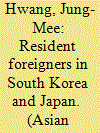|
|
|
Sort Order |
|
|
|
Items / Page
|
|
|
|
|
|
|
| Srl | Item |
| 1 |
ID:
179721


|
|
|
|
|
| Summary/Abstract |
Carbon pricing is widely recognized as the most economically efficient policy to reduce greenhouse gas emissions. However, its high-cost visibility creates political challenges for its implementation at a sufficiently stringent level to achieve deep decarbonization. Flexible regulations, such as renewable portfolio standards and low-carbon fuels standards, incorporate flexibility mechanisms similar to carbon pricing, but seem to face lessor political acceptability barriers. Unlike prescriptive (command-and-control) regulations, flexible regulations do not require technologically-specific compliance pathways and allow credit trading to reduce costs and incentivize innovation. Despite their potential for driving the decarbonization transition, there is comparatively little research on the design and impact of flexible regulations implemented to date. This comparative policy analysis examines government policy documents and academic literature to identify flexible climate regulations implemented in OECD countries and evaluates their implementation context, design characteristics, effectiveness, and public support. In total, 61 unique flexible regulations were identified across 11 countries and 42 sub-national jurisdictions that can be classified into six categories. Findings suggest that as jurisdictions seek to strengthen their climate policy portfolios, flexible regulations can provide a relatively cost effective, broadly supported, and complementary tool to achieve deep emissions reductions, so long as policies are well-designed and interaction and equity impacts are considered.
|
|
|
|
|
|
|
|
|
|
|
|
|
|
|
|
| 2 |
ID:
149051


|
|
|
|
|
| Summary/Abstract |
Although South Korea and Japan tend to maintain their identity as nonimmigration countries, a policy agenda for foreign residents has incrementally emerged, especially since the 1990s. In this comparative analysis, I examine the status of permanent and long-term residents and relevant policy changes that enhance their social and political rights regardless of naturalization. Permanent residents in Japan can access social welfare benefits such as the national pension, public assistance, and child allowances, but they are excluded from local suffrage. In contrast, permanent residents of South Korea have political rights in local elections while welfare coverage for them is restricted to public insurance, with no public aid entitlement. This difference represents a policy gap, caused by inconsistencies in the process of policy revisions and different priorities in policymaking.
|
|
|
|
|
|
|
|
|
|
|
|
|
|
|
|
|
|
|
|
|